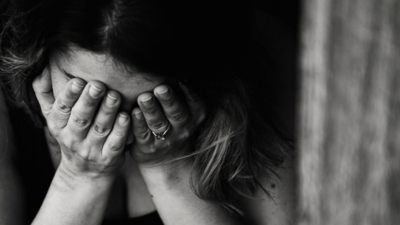

MUMBAI: Despite over a 34 per cent decline in the number of human trafficking cases, Maharashtra continues to top the chart nationally in trafficking for sexual exploitation, reveals the latest Crime in India 2020 report released by National Crime Record Bureau (NCRB).
Of the 557 victims rescued from the clutches of traffickers last year in the state, 97 per cent (541 victims) were trafficked solely for sexual exploitation through forced prostitution.
Nationally, 1,466 victims were rescued last year.Maharashtra and Telangana lead the list for recording the highest number of human trafficking cases in the country. While Telangana witnessed an increase in trafficking cases from 137 in 2019 to 184 in 2020, Maharashtra registered a decline from 282 cases in 2019 to 184 in 2020.
On the other hand, Maharashtra also leads in recording the highest number of women gone missing in the country. Around 88 women went missing daily. A total of 32,283 women were missing and such conditions make them vulnerable to get trafficked and forced into prostitution.
State taking proactive steps; still a long way to goCoupled with stringent restrictions imposed due to the pandemic, the proactive measures taken by the state government and police in curbing trafficking might have contributed to the sharp decline in the number of cases recorded last year.
However, with three large red-light areas in Mumbai, Pune and Nagpur and several small such centres spread across the state, it's still a long way to go to eliminate the crime from the state.
In addition to the red light areas, there are several exploitation centres, such as massage parlours, private flats etc, cropping up every now and then offering a bigger challenge to the police. The state continues to be a source and destination point for sex trafficking.
Suspecting increased movements of traffickers preying on children, the Maharashtra state government recently approved the setting up of 45 anti-human trafficking cells across the state, with 13 of them set in the Vidarbha region.
The state is also contemplating setting up special courts under the Immoral Trafficking Prevention Act to speed up trials and ensure justice to the trafficked victims.
Nagpur Police recently closed down the red-light area in Ganga Jamuna , which according to the police is a hub of child sex trafficking.
“Sex trade centres like red-light areas or private establishments like lodges and massage parlours, keep the demand for sex trade fuelled. It is heartening to see the state starting to crack down on these centres. However, what is needed is a systematic action plan to eliminate demand, as this is what perpetuates the crime,” says Anurag Sahu, assistant professor at Government Institute of Forensic Science in Aurangabad.
“Further, the challenge lies in tracking down the criminal network, their connections with other states, and taking stringent actions to break their impunity. The efforts have to be on a collaborative level between source, transit and destination states. Setting up an independent anti-sex trafficking cell and close liaison among police organisations of states can effectively serve as a deterrence to traffickers and combat the crime.” concludes Sahu.